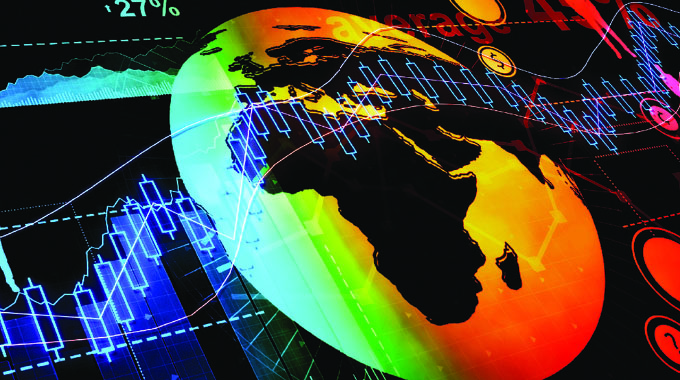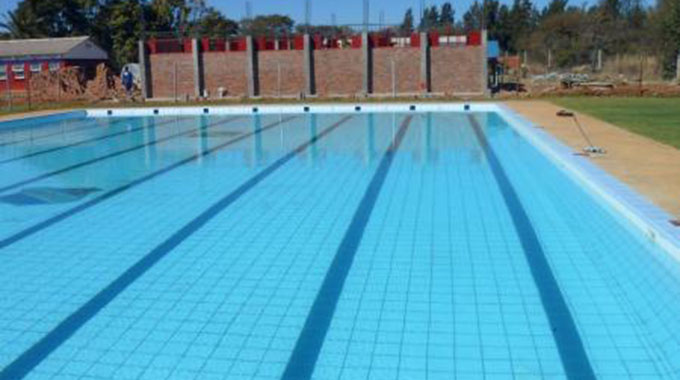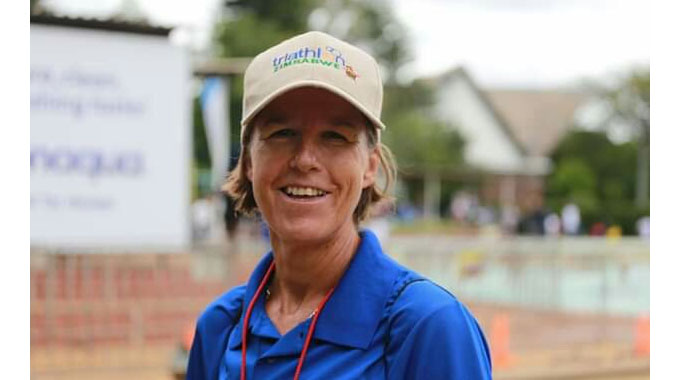‘Africa has the sovereign right to choose partners’

Oleg Ozerov
Ambassador-at-Large, head of the secretariat of the Russia-Africa Partnership Forum, MFA of Russia
As announced a few days ago, on September 13, the second summit of the Russia-Africa Partnership Forum, whose secretariat I have the honour to chair, is scheduled for the summer of next year 2023. In order to prepare it, an Organising Committee was created, headed by Yu.V. Ushakov, Assistant to the President of the Russian Federation.
This summit is designed to give new impetus to Russian-African political, trade, economic, investment, scientific, technical and humanitarian cooperation, and thus ensure it is even more comprehensive and comprehensive.
However, while preparing the forum, carefully analysing information from other international actors, we had to state that there are forces in the world that oppose the development of equal and mutually beneficial cooperation between African countries and Russia, and, noteworthy, these are not Africans themselves.
Particular attention was drawn to the address of the EU Representative for Foreign Affairs and Security Policy, J. Borrell, published on the EU website, as well as a number of his statements during his recent trips to Mozambique, Kenya and Somalia, in which he did not fail to blame Russia for all world troubles, calling on African partners to build closer cooperation with Europe.
Mr Borrell outlined his arguments in four postulates, each of which deserves special attention.
According to a European diplomat, the Russian special military operation is an example of “brutal imperialism of the 19th century, which Africa experienced first hand.”
And now, says J. Borrell, Europe, after recognising its responsibility for what happened at that time in Africa, has the full moral right, hand in hand with the Africans who have been oppressed for decades, to fight against Russia and build an “international order based on rules.”
Moreover, as is often the case with our Western opponents, they do not bother to explain what rules they are talking about, briefly mentioning the UN Charter and not specifying how these rules differ from the universal norms of international law, which they have regularly violated in recent decades, whether in Iraq, Libya or other regions and not very zealously defended against Syria or the Palestinians.
But it is obvious that these rules are not the UN Charter, since they are declared separately.
The question arises: who wrote these rules and for whom? Since this is not deciphered anywhere and is not presented in the form of a full-fledged document, under which would be signed by its compilers and states that agree with it, it creates a strong impression that they are invented by Western countries to solve their own problems and can be changed so that
The Western European agenda, proposed along with the “rules-based world order”, raises many questions.
There, along with declarative slogans about democracy and human rights, there is also a gender “saga” ambiguously accepted in the world with the rejection of the natural division of the sexes, total digitalisation without ensuring the proper level of information security, and much more.
Separately, it is worth mentioning the “green agenda” imposed everywhere, which limits developing countries in their desire to create a solid energy base for electrification and industrialisation.
For example, the other day the European Parliament demanded to stop the construction of the East African oil pipeline under the pretext of violating human rights and endangering the environment. It is significant that the European Union, calling on African states to reduce the emission of harmful gases,
It is curious that any participant in international relations who does not accept these attitudes automatically falls into the category of “autocratic” and they try to isolate and weaken him as much as possible.
Today, using the example of Russia, we are witnessing how the West is trying to deprive sovereign states of their independence through the use of a system of collective punishment, violation of basic political and economic rights, and harsh illegitimate unilateral restrictions.
Blocking of settlement systems, supply chains, freezing of financial assets, confiscation of state and private property, deprivation of the rights to free movement, education, labour activity on the basis of nationality, use of one’s native language, “cancellation” of national culture abroad — these are the measures that are being introduced against Russia in order to punish her for an independent political course, protecting her borders and sovereignty from NATO claims.
Africa should be well aware that today this is how Russia is treated, and tomorrow this fate may befall any country that does not agree to accept Western conditions and standards in the economy, politics and even morality. And the punishment will be selective.
Thus, Ukraine banned a number of political parties,
Unfortunately, such a policy of double standards today can be applied to any country that does not fit into the Western system of values. African nations have experienced for decades the consequences of illegal economic restrictions imposed for the purpose of political blackmail and, in some cases, the change of political power.
The West consistently imposed sanctions against Burundi, DRC, Zimbabwe, Libya, Mali, Somalia, Sudan, Central African Republic, Ethiopia, and South Sudan. And this is only part of the list. To say the least, the US bill “On counteracting the malicious activities of Russia in Africa”, which provides for the collective punishment of Africans for any cooperation with us, is also puzzling, to say the least.
Such a restriction of basic political and economic freedoms indicates unfair competition and a crude imposition of the Western agenda on other countries.
Russia, which Borrell calls “the stronghold of imperialism,” openly advocates the sovereign right of African nations to choose their own path of development, as well as political and economic partners, depending on their own national interests.
Mr. Borrell’s second argument concerns Africa’s food security. In recent months, European politicians have been repeating the same mantra about a global famine looming in developing countries, for which Russia is invariably to blame, while the EU has been working to ensure “uninterrupted supplies” of agricultural products to the continent.
The diplomat refers to the fact that the economic sanctions of the European Union do not prevent African states from purchasing, paying for and transporting Russian agricultural products.
This statement, if we follow the Cartesian logic on which the European world outlook used to be based, does not correspond to reality.
It is absolutely obvious that the food shortage arose, firstly, before the crisis in Russian-Ukrainian relations and without connection with it, and, secondly, due to the West’s underestimation of Russia’s role in the world commodity markets, as a result of which severe restrictive measures by the United States and the EU against our country led to the most serious consequences for the whole world. However, even after the conclusion of the so-called “grain deal”, Europe interprets in its own way the agreements on the export of food and fertilisers through the Black Sea humanitarian corridor.
When we unblocked the Black Sea ports for the transportation of Ukrainian wheat, almost all of this grain was sold mainly to rich European countries, and not really “needy”, as the leaders of the Western world declared at the Food Security Summit in New York.
As of September 20, in accordance with the data of the Joint Coordinating Center of the Black Sea Grain Initiative, out of 178 ships that left Ukrainian ports, only 20 went to Africa and 87, or half, to Europe. President of the Russian Federation Vladimir Putin called this “another impudent deception of the international community, Africa’s partners, and other countries that are in need of food.”
The hypocrisy of the West also lies in the denial to the African partners of their own sanctions imposed on Russian companies supplying food and fertilisers.
Last week, during the summit of the Shanghai Cooperation Organisation, Vladimir Putin announced that he was ready to transfer free of charge 300 thousand tons of Russian fertilisers blocked by the EU to developing countries, primarily Africa. We asked the UN to influence the European Commission to remove discriminatory restrictions on the supply of Russian fertilisers to developing countries, but so far there has been no progress.
A similar situation is happening with Russian grain: Europe still maintains restrictions on freight for its export. There is a feeling of a clever game in which the West deliberately creates a threat to food security in African countries,
The third thesis of J. Borrell is the provision of security in Africa by the West.
And here the main argument of Europe is the broad financial support of the African Union, regional forces and African armies.
In the last fifteen years, the security situation in the countries of the continent has really changed dramatically with the direct participation of Western countries, but in the most tragic sense.
It was they who initiated a number of full-scale military operations that led to the death of civilians, socio-economic degradation, the migration crisis, the growth of transnational and continental terrorism, the illegal trafficking of weapons and human trafficking in Libya, the Central African Republic, Mali, Côte d’Ivoire and the Sahel.
The French military operations Serval and Barkhan in Mali and Sangaris in the Central African Republic demonstrated their complete failure. There is a feeling that today, by directing billions of euros to the military budgets of African countries, the West is trying to pay off the consequences of the chaos that it has sown.
Mr. J. Borrell’s theses about the small size of the peacekeeping contingent of the Russian Federation in Africa and the unfounded accusations of destabilizing the situation in Mali and the Central African Republic with the participation of Russian private military campaigns have little connection with reality.
First of all, I would like to recall that Russia is one of the ten main contributors to the budgets of UN peacekeeping operations, while 80% of the Russian contribution falls on peacekeeping in Africa. In addition, our country provides broad support to African military and police personnel, annually training them in Russian educational institutions both in higher education programs and in advanced training courses.
As for the accusations about the presence of “Russian mercenaries” in African countries, I would like to remind you that the global and African market for relevant services has long been “mastered” by private Western companies.
It is significant that the European Union, which so vehemently condemns Russia, for example, is in no hurry to condemn the activities of the American company Blackwater and its clones. Each state has the sovereign right to decide to whom and under what conditions to apply for military assistance. In particular, at the request of the legitimately elected Central African authorities and subject to the sanctions regime
The UN Security Council in the Central African Republic are Russian instructors. They are sent to this country, which is experiencing an unprecedented military-political crisis after the failed French operation “Sangaris”, with an official mission to train and assist the National Army.
And, finally, the fourth argument of the European politician is the EU’s commitment to the principle of the African Union “African problems – African solutions” and the need to turn the page of the colonial past. J. Borrell operates on the fact that, unlike the “repentant” European partners, today the “others” are pumping out natural resources and agricultural lands from the African bowels, making their economies financially dependent.
In fact, there is a new form of Western colonization of the non-Western. After decolonization, developed countries spent years destroying the economic structures and economies of young African states built with the participation of the Soviet Union.
By the 1980s, most of them were partially or completely dependent on loans and borrowing from the institutions of the Bretton Woods system.
The collective West transformed African national socio-economic models into a single tracing paper, led to the devaluation of national currencies, a reduction in the participation of states in the economy, and destroyed the national industry of developing countries.
Lomé Conventions 1970-1990s – Isn’t this the economic division of the “colonial possessions” by the former metropolises? Agreements aimed at preferential trade and economic cooperation, only increased foreign competition for African companies, and European agricultural, food, oil, mining and transport and logistics companies benefited most from them.
Has France, denying its neo-colonial course, renounced control over the monetary and financial systems of the countries of the CFA franc zones, has it returned its gold and foreign exchange reserves to the treasury of “independent” African states?
Isn’t the never-implemented reform on the transition of the CFA franc to the new “eco” currency a fiction? The discussion about creating their own African currency has been going on for decades, but why don’t European partners hear their African friends, why is Mr. Borrell silent about this? mining and transport and logistics companies.
Has France, denying its neo-colonial course, renounced control over the monetary and financial systems of the countries of the CFA franc zones, has it returned its gold and foreign exchange reserves to the treasury of “independent” African states? Isn’t the never-implemented reform on the transition of the CFA franc to the new “eco” currency a fiction?
The discussion about creating their own African currency has been going on for decades, but why don’t European partners hear their African friends, why is Mr. Borrell silent about this? mining and transport and logistics companies. Has France, denying its neo-colonial course, renounced control over the monetary and financial systems of the countries of the CFA franc zones, has it returned its gold and foreign exchange reserves to the treasury of “independent” African states? Isn’t the never-implemented reform on the transition of the CFA franc to the new “eco” currency a fiction?
The discussion about creating their own African currency has been going on for decades, but why don’t European partners hear their African friends, why is Mr. Borrell silent about this? did it return gold and foreign exchange reserves to the treasury of “independent” African states?
Isn’t the never-implemented reform on the transition of the CFA franc to the new “eco” currency a fiction? The discussion about creating their own African currency has been going on for decades, but why don’t European partners hear their African friends, why is Mr. Borrell silent about this? did it return gold and foreign exchange reserves to the treasury of “independent” African states? Isn’t the never-implemented reform on the transition of the CFA franc to the new “eco” currency a fiction?
The discussion about creating their own African currency has been going on for decades, but why don’t European partners hear their African friends, why is Mr. Borrell silent about this?
One of the most famous African intellectuals of the 20th century, the pan-Africanist Franck Fanon, wrote in 1961: “In this very Europe, they have never stopped declaring that their only concern is the welfare of all mankind. But today we know what suffering humanity has paid for every triumph of European reason.”
- Fanon wrote these words at the height of the parade of African sovereignties – during the decolonization of Africa. More than half a century has passed since then, and we have again returned to the post-colonial struggle, which today has acquired a global dimension, and in this confrontation Russia considers itself in the same camp with the African nations.
We stand for the sovereignty and independent development of the African continent – one of the regional centres of power in the new system of world order, which, like Russia, has its own political and economic agenda. Moreover, Russia is ready to become a provider of African sovereignty, and the upcoming Russia-Africa summit will be convincing proof of this.
Article published in Kenian Daily Nation: <https://nation.africa/kenya/blogs-opinion/blogs/africa-has-sovereign-right-to-choose-partners-3962216>










Comments